Texas’ Talking Heads
As the election cycle heats up, prominent UT grads take to the airwaves to offer sane perspectives from all points on the spectrum. Five Longhorns-turned-TV-stars reveal the secrets, shortcomings, and strengths of their profession.
October 15, 2004. Journalism students still review the moment as a dramatic case study on the intersection of TV and politics.
Comedian Jon Stewart went on CNN’s Crossfire debate program as a guest—but quickly went off the rails.
Instead of making funny quips about his Daily Show, he stayed deadly serious as he criticized Crossfire and its black-and-white debate style. “Stop, stop, stop, stop hurting America,” he begged hosts Tucker Carlson and Paul Begala.
TIME named the episode one of the top 10 TV feuds ever. Not long after, CNN canceled Crossfire.
At the center of that pivotal moment was a Longhorn. Paul Begala is a former UT student body president turned White House aide turned on-air analyst. The tense moments with Stewart weren’t funny, Begala says, but they weren’t as crushing as they looked from the outside. “I like conflict, especially when it’s direct,” he says. “I like someone who stabs you in the gut. Literally as it was happening, I was thinking, ‘This is cool.’”
The show died, but Begala endures, a television stalwart for a decade now. The TV landscape has changed since, with more analysts and viewpoints popping up, more cable networks making clear their ideological leanings, and ever more shows experimenting with different presentation styles.
Here is what CNN’s Begala, Fox News’ Arthel Neville, MSNBC regular Mark McKinnon, and free-roamers Marjorie Clifton and Karen Tumulty see around them—for better and for worse—as they make the television rounds.
Paul Begala
CNN. BA ’83, JD ’90, Life Member
 See me on: Anderson Cooper, John King, and the Situation Room.
See me on: Anderson Cooper, John King, and the Situation Room.
How I’d describe myself: I’m there like a former football coach is in the booth. The bad is I’m not trained to be neutral. As long as the audience knows that, that’s fine. The good is I have experience and access that a journalist doesn’t have.
My special ingredients: I try hard to make things interesting and funny. I do have access that journalists don’t, and I can’t betray that. At the same time, I can pick up vibes that other people might not get.
My launchpad: The University of Texas. We resurrected student government 30 years ago now, in 1982. The rap was it would breed a bunch of little campus politicos. My answer was, yes! We train junior journalists, junior businessmen, junior everything. That’s how you develop a Jake Pickle or a John Connally.
And then… I set out to change the world, to work for politicians and causes I believed in. Wound up with Clinton, and had a top post in the White House. When it came time to move on from that, MSNBC offered me a job.
My inspiration: Mark Shields. He used to be a Democratic political operative, but he calls them as he sees them. And he’s funny—he could do stand-up.
Not so inspiring: I was working for Bill Clinton in 1992, and we were getting pounded in primaries, and one analyst said Clinton was like a gut-shot Confederate soldier. The Democratic Party would end on our watch, he said. The big risk of punditry is thinking tomorrow will be just like today, but more so.
I’ll remember forever: The night that Barack Obama was elected. I’d been for Hillary in the primaries. But I was thinking of Barbara Jordan speaking in the ’70s about how her faith in the Constitution was limitless. It was extraordinary to see hundreds of thousands of people weeping openly in Grant Park.
How I prep: I have a broad media palate. I read the Holy Bible and watch Fox News so that I know what both sides are thinking.
Green room confidential: Michele Bachmann was on CNN one time, and I brought my four boys to work with me. Ms. Bachmann showed up to do an interview, and she had her girls. In the green room, she instantly went into mom mode and was so nice to my kids. I don’t agree with anything Michele Bachmann believes in, but I can tell from my exposure to her that she is a good person.
Funniest on-air oops: My buddy [Alex] Castellanos did this. Mrs. Romney talking about Michigan’s mitten shape. ‘I touched the tip of the mitt and the base of the mitt,’ she said. Alex said, ‘Now we know where all those kids came from.’ I thought Anderson Cooper was going to crawl under the desk.
Proudest moment: I am proudest of my strong opposition to the war in Iraq.
What TV gets right: Commentary at its best provides insight at a time of information overload. When it works it brings context, perspective, and a point of view. The basic information—who, what, when, where—is vital. But commentary can tell us how and why, which helps empower us to form our own views.
What I get wrong: Let me focus on my own shortcomings. I tend to be too black-and-white. I place a high premium on humor, but sometimes I wound instead of tweak. And it wouldn’t hurt if I looked more like Matthew McConaughey instead of, as one pundit said, Peter Boyle in Young Frankenstein.
Arthel Neville
Fox News. BJ ’86, Life Member

See me on: Fox News. I anchor America’s News Headquarters. I also appear on the O’Reilly Factor most Fridays and fill in on America’s Newsroom and Fox & Friends First.
Call me: Journalist. Broadcaster. Do not call me a pundit—I’m not that.
Doing this since: 1984. I was a junior at UT when I started.
What I bring: Integrity, factual information, honesty, trust. And in a way that’s personable.
UT prep for the public sphere: I was a full-time student and full-time reporter for two years straight. As a cub reporter, my days off were Mondays and Tuesdays—so I went seven days a week. I’ll never forget that.
My model: I never wanted to pattern myself after anyone. But my right-hand mentor was Ed Bradley. He gave me the best advice ever in my career. When I was at KVUE in Austin, I would send those three-quarter-inch tapes to Ed, and he would critique me. I would see the girls at the station anchoring. He said, ‘No, you have the innate ability to be an anchor. You continue to hone your skills as a producer, as a reporter, as a writer, as a storyteller, as an editor.’ That’s why I’m still standing.
Lowlights: I’ve had my moments when I worked in a situation when I’ve thought, ‘This is not why I got into this.’ I don’t want to be around people who are lazy or lack scruples or just want to showboat on television.
Proudest of: Just in general I’m happy to have the perspective of being an African-American woman doing this on a major level. But specifically, I covered Hurricane Katrina. I’m from New Orleans. That was the most difficult assignment in my career. Because as a journalist, you’re not the story. But doggone it, I was the story. My home was soaked in water for two weeks. Everything that is me drowned in Katrina.
DIY prep: We have great makeup artists and hairstylists at Fox, but I am known to do my own. I can do my makeup in 30 minutes and my hair in about 15. It’s rare. But I like doing it because I don’t have to sit in the chair too long.
Backstage surprise: This past Saturday, as I finished all my preparation in terms of reading, I threw on the music in my office and started dancing to get myself all excited about my job.
Biggest drag: It’s a visual medium and I’m female, so having to work out and be mindful of how I eat. That part’s no fun. But I do not starve myself, for the record. I just eat healthy.
Best perk: I love what I do and am happy enough to still be doing it. That right there is perk enough for me.
O’Reilly Confidential: I find him to be a kind-hearted, hardworking guy. He’s family-oriented, a good dad, and if he’s your friend, he’s a good friend. He’s intense with me, too, but I just give it back to him, and I don’t take it personally.
TV analysis gives us: Well, it gives people food for thought. It definitely changes the game—politicians have to always be on their toes because eyes are everywhere.
Get the distinction: Our job as journalists is to report the news. Now if you want to tune into the analysis and opinion shows, you know going in that that is opinion. There’s nothing wrong with that, but you’re going there to hear different points of view. Don’t be confused.
Marjorie Clifton
CNN, Fox News, and beyond. BS ’02

See me on: CNN and Fox. Early Start, Hannity, Lou Dobbs. I go full circle.
I’d call myself: An analyst. And I’m officially a political independent.
Been doing this since: It’s really only this year that I started doing on-air camera punditry. What has been a consistent thing through my entire career is training women in media. The camera got turned on me.
What I bring to the table: A woman’s perspective. There is still a huge disparity in terms of guests and commentators.
How I got started: I was a broadcast journalism major at UT. I left that to go to advertising and marketing because I was so turned off by the idea of having to sell media. What I’ve learned and what I’m trying to do is to play the game so you can get in and change it. I always get pushed to be a Republican or Democrat, because that’s what sells. I try to represent both sides in a fair way that’s promoting dialogue instead of polarity.
How UT helped: I came out of a private all-girls school in Houston. The diversity of UT gave me a broader perspective.
TV that inspires me: In terms of gumption and guts, Rachel Maddow has created a new space for women in humor and sarcasm. She infiltrated the boys club in a way that I don’t think any other woman has. Fareed Zakaria is very balanced, and his work is research-based. He pushes outside the normal political drivel and focuses us on having a more global perspective.
My favorite moment: Recently debating this birth control issue. Never before has my voice felt more important because of the lack of women out there speaking about it. It required me to bring a bigger part of myself into it than I’d ever had before as a woman and a Catholic.
Quote I’m proudest of: ‘Gentlemen, don’t stop opening doors—just don’t forget the doors to the newsroom and the boardroom.’
The real deal on prep: It means having to stay current on what’s happening, up to date on what other people are saying, and doing the necessary research on a given issue. I do two or three hours the night before of general prep. Then they’ll email me the topics at 6 a.m. and I’ll prep until I’m on the air at 9.
Backstage secrets: People don’t realize how much time you’re spending sitting in a meat locker trying to talk to a black box and appear animated and engaged. They keep it subzero in there. I have to wear a layer of wool stockings or I’d be shivering on camera.
A swing and a miss: After a really tough debate at CNN, I came out really proud that I’d come through an early morning coherent and looking alive—and then slammed right into a glass door. I looked down and saw Dunkin Donuts coffee and was so excited, and then, wham.
Drags of the job: The drag-queen makeup you wear out of the studio. It freaks people out sometimes. But the worst part is you always had something else that you wanted to get in.
And perks: My favorite is when you can get somebody to agree with you that you’d never thought would agree.
Commentary’s contributions to democracy: Here’s the thing—it’s an opportunity to change hearts and minds. The most effective people on TV force you to think outside your comfort zone.
What TV could do better: Hire more women executives so issues are represented more equally.
Mark McKinnon
MSNBC and More. ’97

See me on: Various television platforms. I am a regular on Morning Joe on MSNBC.
What I call myself: Pundit doesn’t seem serious. Analyst seems too serious. I generally just refer to myself as a media guy.
What I bring to the table: I try to bring a common sense, middle-of-the-road perspective. I am not a hyper-partisan. I worked 15 years for Democrats and 15 years for Republicans, so I understand all perspectives. I also started an organization called No Labels, which seeks to bring people from all sides together in an effort to make Washington work.
How I started I volunteered for Lloyd Doggett’s U.S. Senate race in 1984.
How UT launched me: My first campaign was for Daily Texan editor in 1980. As editor of the Texan, I represented student views both in the paper and in public forums.
My model: Charlie Rose is terrific. He’s got great guests and a longer format that allows for serious discussion on important issues.
Lowlight: I don’t want to name names, because I still have to work for their network, but I was on a show and when we went to a break the host said, ‘Cut the bipartisan crap, McKinnon. Just give me some red meat.’
Favorite moment: Had some fun last week when I showed up on Morning Joe with a beard. And they cut to a shot of me side-by-side with the guy from the Dos Equis campaign. ‘Stay Thirsty, My Friends.’
Proudest of: I’m happy just to get through any show without totally humiliating myself. I usually sign off by saying, ‘Kick it hard and carry on, regardless.’
My preparation strategy: Often I don’t get much advance notice. But I always try and think of at least a few things that I want to get into the conversation. Otherwise, you are totally at the mercy of the interviewer.
What goes on backstage: People would be surprised by how friendly it can be behind the scenes between harsh partisans who then get on camera and tear each other apart.
Kudos: Cable TV provides an astonishingly vast array of opinions and ideas. There is something for everyone.
Constructive criticism: Increasingly, in an effort to attract niche audiences, cable TV is pushing further and further to extremes. It would be good for all outlets to work diligently to make certain they are providing a balanced perspective.
Karen Tumulty
The Washington Post and Elsewhere. BJ ’77.

See me on: Washington Week, Face the Nation, Rachel Maddow on MSNBC, Red Eye on Fox.
I am… Basically a reporter. Everything I deal with, whether it’s the stories I write for the newspaper, Twitter, or programs I do on TV, really does grow out of my body of work, which is reporting.
What I offer: There’s a real value to having watched the political and governing process for as many years as I have. It gives me the ability to take a look at what’s going on now and get a sense of what it means.
Doing this since: The television stuff starting in the mid-’90s. The Clinton impeachment coincided with an explosion in cable news. TIME, where I was before the Post, was very eager to see us on the air.
Getting my start: Part of it is really just doing it. There’s no substitute for that. TIME put us through media training as well.
How UT helped: The business was so different when I was in school in the late ’70s. It was very much a print-focused curriculum. But the writing and analysis skills translate pretty easily.
The trick: The thing you have to be willing to do is say, ‘I don’t know.’ There are things you can’t predict or can’t know, but there is a great deal of pressure to act like you know things.
My inspiration: I so admire Gwen Ifill. On her show, she will only have real reporters. You have to have covered the actual thing you’re talking about. Nobody can be an expert on everything. Gwen has a way of keeping people on point and to the facts.
Most discouraging moment: I was once on with a so-called analyst at Fox News who was asked about something going on on the Democratic side of the ledger. She said, ‘I don’t follow Democrats, I only follow Republicans.’
Favorite on-air moment: One of the most thrilling things I’ve done is moderate one of the Republican presidential debates at Dartmouth.
Backstage surprise: People who fight on the air generally like each other off the air.
What commentary contributes to democracy: It gives us immediacy. People invest a lot in it.
What TV could do better: It could always use additional depth, but just an acknowledgment that some things are unknowable. That’s my problem increasingly on the cable channels—an acknowledgment that there’s any validity to some other point of view.
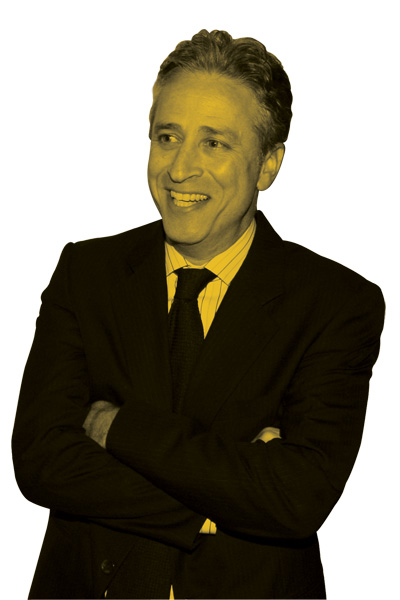

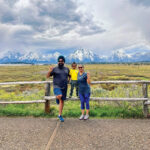


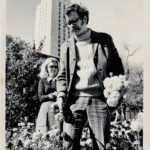

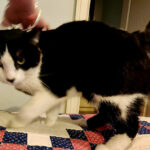
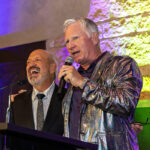

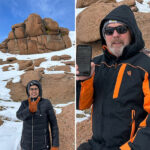
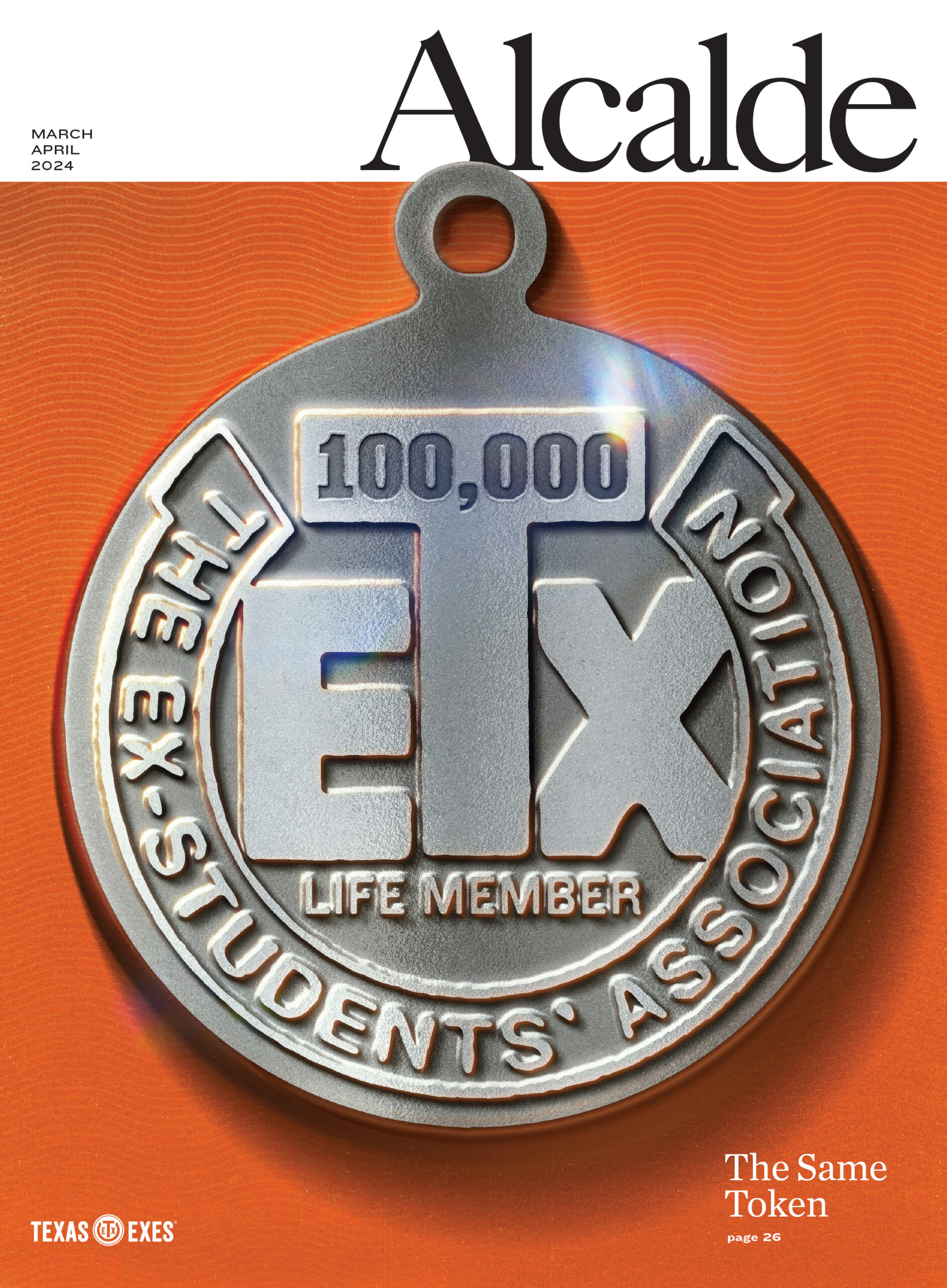






3 Comments